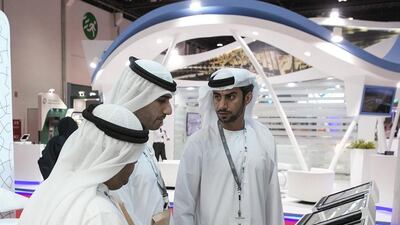Dead Sea // While few of the Middle East and North Africa’s economies are fully prepared for the impending disruption to jobs brought about by technological change, the fastest emerging profession over the last five years has been entrepreneurship, according to a new report from the World Economic Forum (WEF).
The Fourth Industrial Revolution, driven by new energy supplies, mobile internet, climate change and Big Data, will result in the growth of wholly new occupations, decline in some occupations, new skills requirements in all jobs, new ways of organising and coordinating work, and new tools to augment workers’ capabilities, the WEF said. This revolution is projected to create a wide range of new jobs in fields such as data analysis, computer science and engineering.
There will be strong demand for professionals who can blend digital and science, technology, engineering and maths (Stem) skills with traditional subject expertise.
“Regardless of sector or occupation, new work formats are offering individuals and entrepreneurs new opportunities,” the report said.
According to data from LinkedIn, among emerging professions in the region, entrepreneur grew the quickest at 37 per cent between 2011 and 2016. Next came program analyst with 34 per cent growth, followed by quality assurance tester.
“As the region already faces a skills gap according to business leaders, the region will need to prepare current and future workforces for the future of jobs, particularly high-skilled roles, to remain competitive,” the WEF said.
The potential impact of job automation in the region could be challenging and nearly half of all work activities in the UAE are susceptible to automation. The “WEF’s Future of Jobs” analysis found that, compared to 2015, 21 per cent of core skills required across all occupations will be different by 2020 in the GCC.
According to Saadia Zahidi, the head of the education, gender and work system initiative at the WEF, countries need to take action to invest in talent, close skills and gender gaps and create high-value-adding jobs to unlock the potential of a young population.
Women represent huge latent talent but workplace gender gaps remain high. Closing the gender gap would increase UAE GDP by over 12 per cent, according to the WEF.
The transition to a more ecologically sustainable economic model also has the potential to create millions of new jobs globally, including in the Mena region, the WEF said.
The energy efficiency sector is expected to be the single largest generator of new jobs within the UAE, and is projected to create more than 65,000 jobs by 2030.
The UAE’s broader Green Growth Strategy aims to create 160,000 new jobs and boost GDP by four to fiver per cent by 2030, according to research from The Climate Group.
The WEF on the Middle East and North Africa is taking place at the Dead Sea in Jordan from today.
mfahy@thenational.ae
Follow The National's Business section on Twitter


